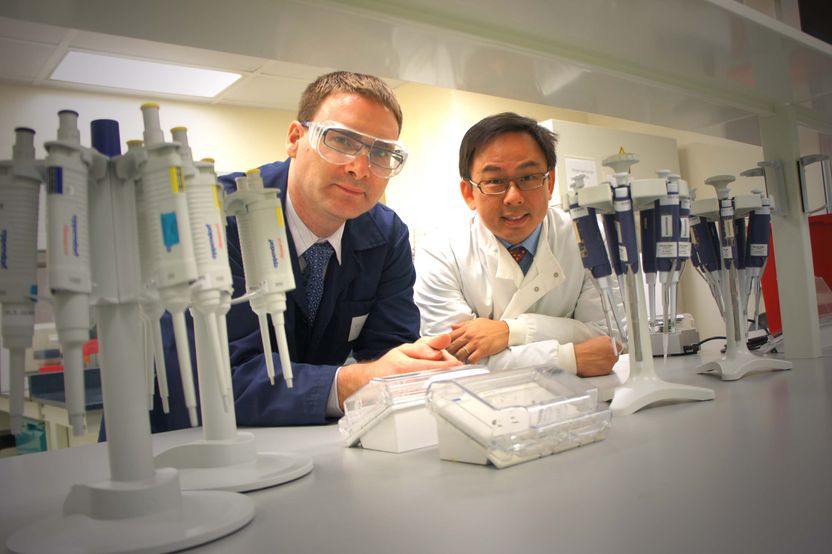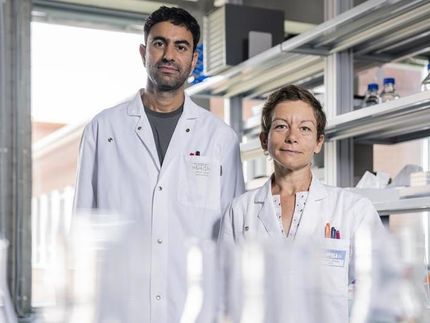Launch of BioLynx provides a boost for the international malaria research community
New NUS spin-off company launches at TechVenture 2011
Advertisement
A new biotech company has been spun off from the National University of Singapore (NUS), to provide research tools, targeting the international malaria research community. BioLynx Technologies Pte Ltd (BioLynx) has been founded by two NUS faculty members: Dr Martin Lear from the NUS Department of Chemistry and Dr Kevin Tan from the NUS Department of Microbiology. The company will focus on further developing and commercialising its LynxTagTM technology platform to other drugs and diseases. BioLynx is launching its presence at TechVenture 2011.

Dr Lear and Dr Tan.
As part of a NUS research project, Dr Martin Lear and Dr Kevin Tan successfully tagged a fluorescent marker to chloroquine, a drug that has been used in the treatment of malaria since 1947. The fluorescent-labelled chloroquine molecule, known as LynxTag–CQTM, demonstrates the same biological activity as normal chloroquine. Due to the fluorescent tagging, researchers can now visualise intracellular drug-cell interactions, in an easy and cost-effective manner. Malaria researchers will find LynxTag–CQTM a useful research tool for studying topics, such as chloroquine resistance, drug uptake, mechanism of drug action, or chemo-sensitization.
“We already validated LynxTag-CQTM as a research tool for malaria research. In addition, we believe it has greater potential and can be used to study mechanisms of other diseases at a cellular level. For example, chloroquine is also used in treating immune diseases, cancer and some viral infections. Moving forward, we plan to go beyond just chloroquine, to have a pipeline of products, synthesizing chemical tags for other high value drugs,” said Dr Kevin Tan, Director (Biology) and co-founder of BioLynx, and an Assistant Professor at the NUS Yong Loo Lin School of Medicine.





















































